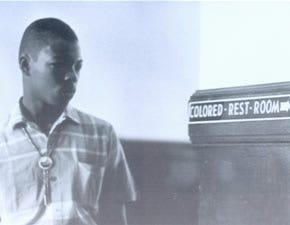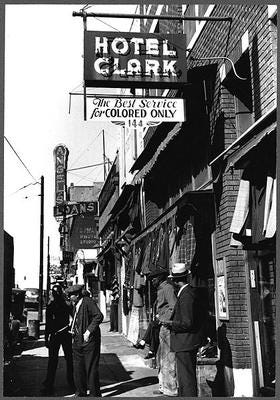Gus was one of the best men I ever knew. He worked for me on one of the soil testing drill rigs that I ran out of Tampa shortly after I graduated from the University of Florida in 1966.
He was a driller helper, and although a small man, did heavy labor all day long without complaint. He received minimum hourly wage and I was never able to get him a raise in the year that we worked together.
My boss said the job was worth no more than minimum wage. Gus was getting close to retirement age, and although he couldn't read and write, his wife was a well educated woman. She was the principal of an all black school in Tampa.
Gus's only vice, as far as I know, was playing Bolita every week. That was an illegal gambling game in Florida. Bolita disappeared shortly after the state came up with the Florida lottery and made it legal to separate poor people from their money.
I managed the drilling department of an engineering testing company. We had three truck mounted drill rigs that made test borings at sites all over the state. The borings were to determine the quality and strength of soil to be used in design of building foundations or pavement sections.
Each drill rig had a white driller, and two black driller helpers. Gus was the most senior of all the drillers and helpers.
Although the Civil Rights Act of 1964 was on the books, not everyone in Florida was on board with the new laws regarding equal opportunities in jobs, housing and other areas of society.
In those days, many hotels and motels would not accept black guests even though the new laws prohibited discrimination. This meant that my black driller helpers could not share a room with the drillers, and presented a housing problem for which a solution had long existed.
Every Florida town had a boarding house or motel that catered exclusively to black customers. These were not always advertised as such, but any black person in a town could direct us to the appropriate place where Gus and the others could rest after a heavy day's work.
A similar problem existed with restaurants. A few allowed black customers inside; most others made them use a take out window and eat outside.
The pictures above were taken in 1959 and earlier. Things had not changed too much in Florida by by the mid 1960s, but those bad old days are just ancient history now, except to the people who lived them.






I love your story about Gus. People need to know the truth...and how sad it was so recent in our history and this was still going on. That is how I remember Florida when we went down there every year to live with my grandparents in Lynn Haven. The water fountains and bathrooms at the gas stations and rest stops were also segregated in the Southern States on our trips down. I remember asking them, "why?" They couldn't answer. They had two lovely people working for them that they took in as friends. One was a maid and one worked as a gardener. I loved them both. My grandmother would have the maid in for lunch. She never treated her differently. My grandfather and Marsh were good friends and worked together outside. My grandfather took their families and children Christmas Gifts every Christmas. Good people should not be treated badly. It's so so sad.